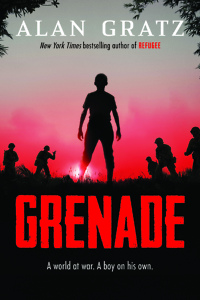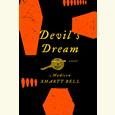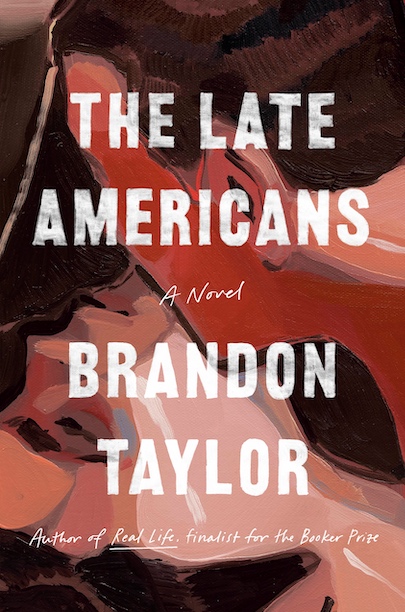War Swept Them Away
Alan Gratz’s new novel for middle schoolers dramatizes the Battle of Okinawa
“Today was the end of everything Hideki had ever known,” writes Knoxville native Alan Gratz in Grenade, his new novel for middle schoolers. The year is 1945, and Hideki Kaneshiro is a fourteen-year-old boy living on Okinawa. This tiny island province off the coast of Japan is about to become the site of one of the bloodiest battles of World War II.
Hideki and his schoolmates are each given two grenades. They will need the first to kill as many American soldiers as possible. They will need the second to kill themselves. “From this moment, you have graduated from students to soldiers,” a Japanese officer tells them. “You are now the Blood and Iron Student Corps. Each of you must be ready to die a glorious death in the name of the Emperor.”
Meanwhile, Private Ray Majors from Nebraska has landed on the island, along with 183,000 other troops, for his first combat mission since enlisting. It’s been four years since the Japanese attack on Pearl Harbor. The war in Europe is nearly won, but the war in the Pacific rages on.
The Battle of Okinawa will last eighty-three days. By its end, between one-fourth and one-third of the island’s population of 450,000 will die. Adding to the horror of the siege itself is the fact that Japan has no intention of protecting the island. It plans to use the Okinawan people as a human shield instead, a way to slow down the advance of American forces and buy time to strengthen mainland defenses.
Into this maelstrom of death and destruction step Ray and Hideki.
 Each young man struggles to follow his conscience in the face of almost unendurable tragedy, and each is tested to his limit. When half his friends are cut down before his eyes, Hideki realizes, “This was a disaster. It wasn’t supposed to go like this. This wasn’t what it had been like in training. It was all happening so fast, and they had no control over any of it.” As Ray’s foxhole buddy says, “The secret to running through artillery is that it doesn’t matter what you do. You zig, you may make it. You zag, you may get hit. There’s a bomb or a bullet or a grenade out there with everybody’s name on it, and if it’s gonna get you it’s gonna get you.”
Each young man struggles to follow his conscience in the face of almost unendurable tragedy, and each is tested to his limit. When half his friends are cut down before his eyes, Hideki realizes, “This was a disaster. It wasn’t supposed to go like this. This wasn’t what it had been like in training. It was all happening so fast, and they had no control over any of it.” As Ray’s foxhole buddy says, “The secret to running through artillery is that it doesn’t matter what you do. You zig, you may make it. You zag, you may get hit. There’s a bomb or a bullet or a grenade out there with everybody’s name on it, and if it’s gonna get you it’s gonna get you.”
Trapped in a meaningless situation they fear they are unlikely to survive, both Hideki and Ray instinctively look for ways to humanize the enemy. Ray attempts to protect civilians and collects photos from the dead that depict them with their loved ones during happier times. Hideki leads others to safety when he can and refuses to inflict harm, even when his own life is in jeopardy. As each one struggles with what he has been taught about honor and courage, neither is sure that these efforts will make any difference in the end.
Gratz pulls no punches. The violence in this book is relentless, and the body count is high. Grenade shows the dirty, hungry, cruel, and pain-filled reality of war:
It didn’t look like Okinawa anymore. American bombs had knocked down trees and taken the tops off hills, stomping the landscape flat like an angry god. Entire villages were shattered, the wooden houses and barns reduced to toothpicks. There was no color to anything anymore—people, the ground, the sky, they were all a dull, filthy gray-brown, like all the paints on an artist’s palette had been swirled together in a muddy mess.
About a memorial on the island commemorating the fiftieth anniversary of the battle, Gratz writes, “It honors the men and women and children listed there not as soldiers or conscripts or refugees, but as the people they were before war swept them away.” With Grenade, he demonstrates that despite the evil of war, life is resilient. Against overwhelming odds, Ray and Hideki find the strength to look past differences and into the eyes of their fellow frightened human beings.

A graduate of Auburn University, Tina Chambers has worked as a technical editor at an engineering firm and as an editorial assistant at Peachtree Publishers, where she worked on books by Erskine Caldwell, Will Campbell, and Ferrol Sams, to name a few. She lives in Chattanooga.



